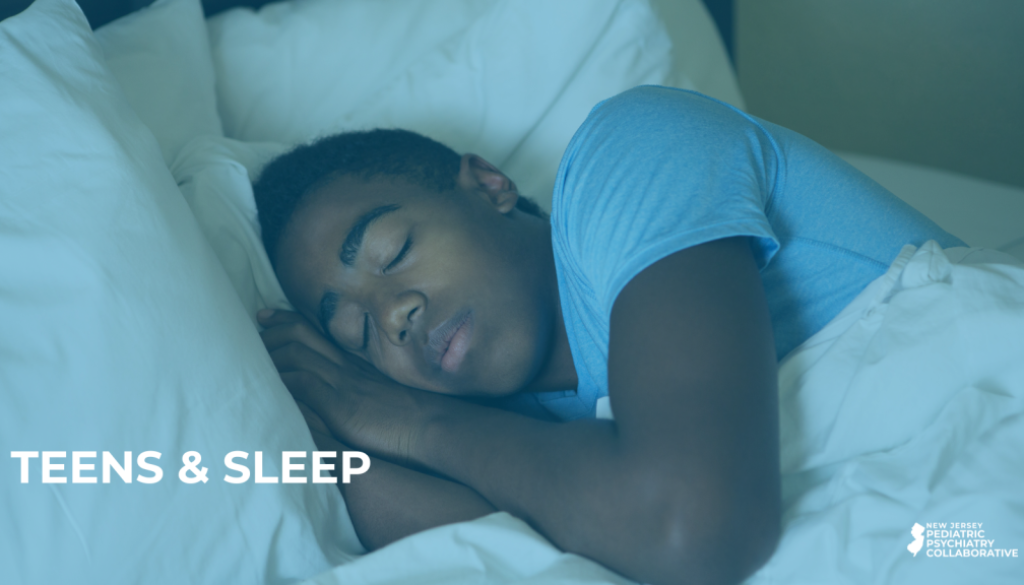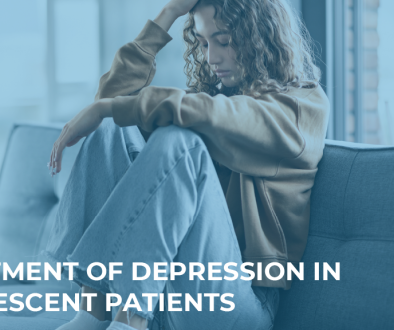Sleep Smart: Unlocking the Teen Brain’s Full Potential
Co-authors: Amy De Silva, MD and Thomas Priolo, MD
Adolescence represents a critical window of development, characterized by rapid physical growth, brain changes, evolving social roles, and the development of emotional regulation. During this formative period, teens are particularly vulnerable to health habits that can either hinder or enhance their long-term well-being. For both healthcare providers and parents, it is essential to recognize that adequate, high-quality sleep is imperative for the development of kids and teens. Sleep directly supports teens’ emotional stability, cognitive functioning, and behavioral health. Importantly, adolescents have unique sleep needs that differ significantly from those of children and adults, and therefore require added attention and guidance to foster healthy sleep routines during this vital stage.
Adolescents experience distinct biological changes in their sleep-wake cycles, which include a natural shift in circadian rhythm that causes a delayed release of melatonin 1. This physiological change makes teens feel more alert later at night and makes early bedtimes more difficult to maintain. As a result, early school start times often conflict with their biological drive for later sleep and wake times. This is in contrast to children’s sleep, who typically fall asleep earlier, or adults, whose sleep cycles begin to stabilize. Research shows that teenagers require 8 to 10 hours of sleep per night to support optimal physical growth, brain development, and emotional regulation. However, most teens fail to meet these needs, often due to a variety of factors such as increased academic work load, social conflict, social media and screen time use. Healthcare providers play a critical role in educating families about these developmental sleep patterns, providing psycho-education on sleep hygiene as well as recommending psychotropics helpful in aiding sleep.
Sleep deprivation in adolescents is associated with a wide range of short and long-term health consequences that healthcare providers should actively monitor and address. In the short term, insufficient sleep impairs cognitive functions such as attention, memory, and decision-making. This impairment can directly negatively impact academic performance and can lead kids to make poor decisions. From an emotional standpoint, sleep-deprived teens are more prone to mood disturbances, including irritability, anxiety, and depression, and may be at higher risk for substance use and impulsive behavior. Chronic sleep deficits can also contribute to metabolic dysregulation, increased risk of obesity, weakened immune function, and long-term cardiovascular risks. Recognizing and addressing sleep deprivation early is crucial for preventing these outcomes and supporting adolescents’ overall development and well-being. Routine screening for sleep patterns during health visits can provide a critical opportunity for early intervention.
Some barriers significantly interfere with teens’ ability to achieve adequate sleep, which healthcare providers and parents should be aware of. Some research evidence suggest that early school start times can be an obstacle, as this schedule forces teens to cut their sleep short, and even propose that delaying school start times may allow adolescents to acquire increased sleep duration throughout the school week, thereby minimizing sleep deprivation in the long run2. Over time, this chronic sleep restriction can impair memory, attention, mood regulation, and physical health. Additional factors such as academic workload, extracurricular commitments, social lives, and part-time jobs often extend well into the evening, further delaying bedtime. Providers should incorporate discussions about these barriers into adolescent health visits and support families in developing practical strategies to promote better sleep hygiene.
Healthcare providers play a pivotal role in supporting the establishment of healthy sleep habits for adolescents. Parents can be encouraged to set consistent sleep routines, model good sleep hygiene, and limit screen time, particularly in the hour leading up to bedtime, to help regulate their teen’s circadian rhythm. Healthcare professionals should educate families about the importance of sleep, screen for potential sleep disorders, and provide guidance on overcoming common sleep barriers, by providing education to parents and kids on the health benefits of having a consistent sleep schedule. Healthcare providers can suggest ways that kids can create an environment conducive for sleep, such as keeping the climate cool, room dark and making sure to remove any screen time devices. In addition, healthcare providers can promote relaxation techniques or cognitive behavioral strategies that are convenient for kids to use in their environments to help promote sleep. These combined efforts can create an environment that fosters better sleep and, ultimately, improved physical, mental, and emotional well-being for adolescents.
Co-Authors Profile:

Amy De Silva, MD
Child & Adolescent Psychiatric Fellow
Trustee-at-Large, New Jersey Psychiatric Association

Dr. Thomas Priolo
Medical Director, Child & Adolescent Consult & Liaison Psychiatry
Assistant Program Director, Child & Adolescent Psychiatry
Child & Adolescent Psychiatrist Urgent Care with Behavioral Health
1 Carskadon, M. A. (Ed.). (2002). Adolescent sleep patterns: Biological, social, and psychological influences. Cambridge University Press.
2 Wheaton, A. g., Chapman, D. P., & Croft, J. B. (2016). School Start Times, Sleep, Behavioral Health, and Academic Outcomes: A Review of the Literature. The Journal of school health, 88 (5), 363-381. https://doi.org/10.111/josh.12388




